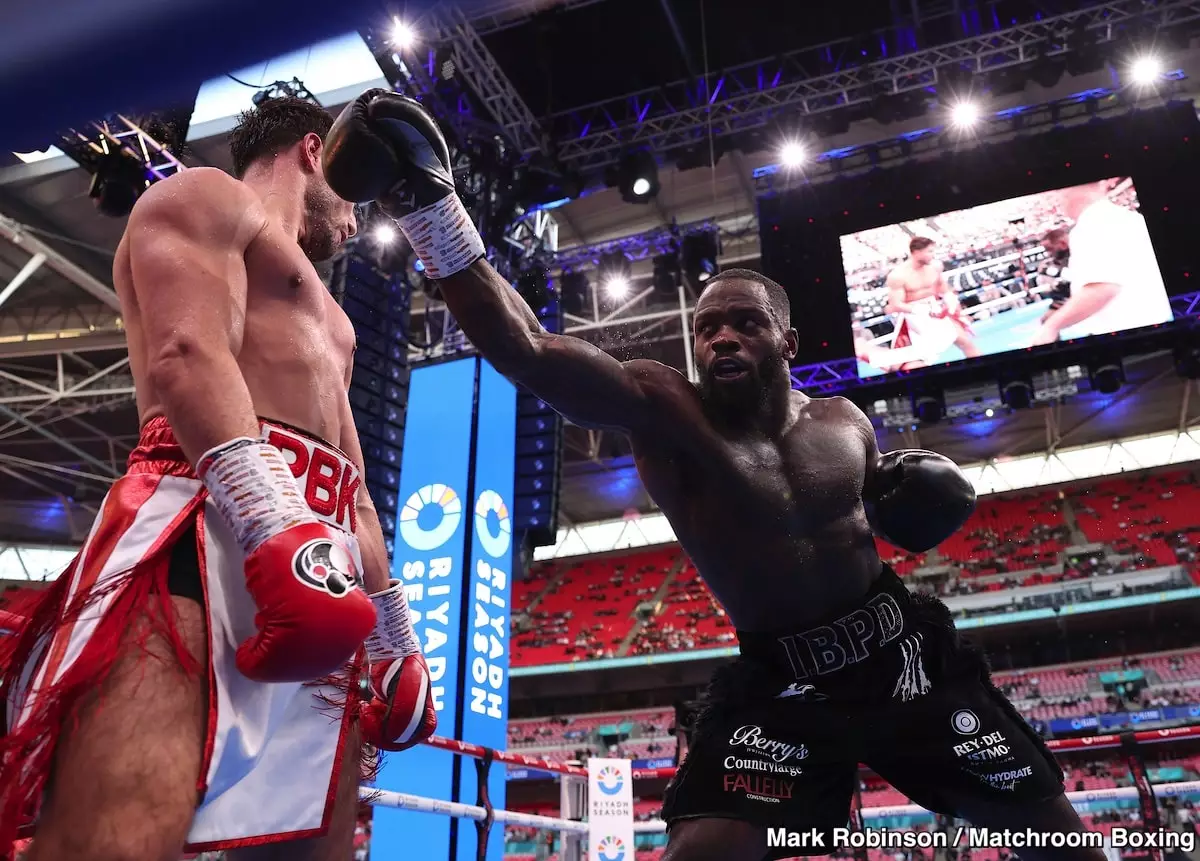In the ever-dramatic world of professional boxing, injury and illness can drastically reshape the trajectories of fighters’ careers and the events that surround them. Recently, promoter Eddie Hearn confirmed the unfortunate news regarding Israil Madrimov’s withdrawal from his much-anticipated fight against Serhii Bohachuk, originally scheduled for December 21, 2023, in Riyadh. The announcement highlighted Madrimov’s acute bronchitis, a legitimate health concern that has led to his exit from the card. However, this incident raises broader questions about the implications for replacement fighters and the spectacle of boxing itself.
Madrimov’s condition, specifically acute bronchitis, serves as a cautionary tale that illustrates the physical toll that boxing can take on its athletes. Acute bronchitis can significantly impair a boxer’s performance due to breathing difficulties, fatigue, and a general sense of malaise—all factors that are detrimental in a high-stakes scenario like a title fight. Hearn has been vocal about the authenticity of Madrimov’s health issues, asserting, “He was 100% fighting Bohachuk,” indicating that the decision to withdraw was not made lightly.
Such withdrawals often lead to skepticism among fans and pundits who may speculate on whether the reasons for a fighter’s exit are valid. This is a recurring theme in combat sports, where conspiracy theories swirl around fighters’ conditions. However, this case serves as a reminder of the broader realities of physical health in boxing, where the demands of such a brutal sport can lead to serious ailments that limit a fighter’s ambitions and capabilities.
In the wake of Madrimov’s exit, Hearn announced that Ishmael Davis would be stepping in as the replacement opponent for Bohachuk. Davis has had a patchy but adventurous professional career thus far, which now sees him given an unexpected opportunity to fight for greater recognition and financial reward. Hearn noted that Davis previously fought Josh Kelly on a week’s notice, which resulted in a majority decision loss. This Scenarios portrays Davis as a fighter who thrives in challenging situations, albeit under difficult circumstances.
Though replacing a fighter just weeks before a major bout poses a significant challenge, it also illustrates the perseverance required in the boxing realm. However, the timing and circumstances of Davis’s preparation cannot be overlooked. Notably lacking in punching power—a trait highlighted by his previous performance against Kelly—Davis may be entering the ring with a steep uphill battle against a potent puncher like Bohachuk.
While the potential for a hefty payday is appealing, the inherent risks associated with stepping into the ring under short notice cannot be understated. Hearn expressed his excitement for Davis’s financial windfall, emphasizing the transformative potential of the fight for Davis’s career and personal life. Statements like, “He’s going to buy himself a nice house,” reflect the often-overlooked socioeconomic dimensions of professional boxing, where a single fight can drastically alter a fighter’s circumstances.
Yet, this raises further questions regarding the ethics of promoting and encouraging fighters like Davis to take fights on short notice. While the lure of financial gain is substantial, the likelihood of injury or permanent damage looms large, especially against well-prepared adversaries. Fighters’ well-being should be prioritized, and it is crucial that promoters consider the long-term implications of such decisions on their athletes.
Eddie Hearn’s handling of this situation touches on critical aspects of the boxing industry: the unpredictability of fight scenarios, the fragility of fighters’ health, and the potential for life-changing opportunities. Moreover, it prompts a reflection on the ethics of exploiting fighters’ dreams against the unforgiving backdrop of the sport.
As fans eagerly anticipate the rescheduled bout between Bohachuk and Davis, the boxing community is left to ponder: how do we balance the need for thrilling competitions with the safety and welfare of the athletes? Israil Madrimov’s withdrawal is more than just a cancellation; it is a window into the struggles and triumphs that define the sport, showcasing the very nature of boxing—where every punch comes with both glory and risk.


Leave a Reply